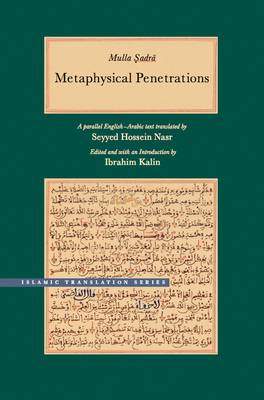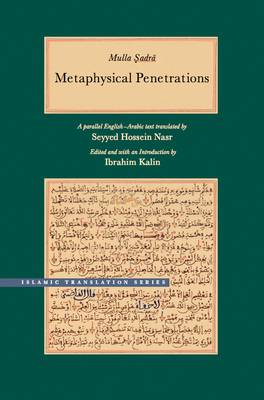
- Afhalen na 1 uur in een winkel met voorraad
- Gratis thuislevering in België vanaf € 30
- Ruim aanbod met 7 miljoen producten
- Afhalen na 1 uur in een winkel met voorraad
- Gratis thuislevering in België vanaf € 30
- Ruim aanbod met 7 miljoen producten
Zoeken
€ 40,95
+ 81 punten
Omschrijving
Mulla Sadra (ca. 1572-1640) is one of the most prominent figures of post-Avicennan Islamic philosophy and among the most important philosophers of Safavid Persia. He was a prolific writer whose work advanced the fields of intellectual and religious science in Islamic philosophy, but arguably his most important contribution to Islamic philosophy is in the study of existence (wujud) and its application to such areas as cosmology, epistemology, psychology, and eschatology. Sadra represents a paradigm shift from the Aristotelian metaphysics of fixed substances, which had dominated Islamic philosophy, to an analysis of existence as the ultimate ground and dynamic source of things. He posits that all beings derive their reality and truth from their wujud and that a proper philosophical analysis must therefore start and eventually end with it. The present work's focus on Sadra's gradational ontology provides a strong foundation for the reader to understand Sadra's other works and later texts by other philosophers working in the same field. This edition contains parallel English-Arabic texts and a new translation by preeminent scholar of Islamic philosophy Seyyed Hossein Nasr.
Specificaties
Betrokkenen
- Auteur(s):
- Vertaler(s):
- Uitgeverij:
Inhoud
- Aantal bladzijden:
- 320
- Taal:
- Engels
- Reeks:
Eigenschappen
- Productcode (EAN):
- 9780842528399
- Verschijningsdatum:
- 15/06/2014
- Uitvoering:
- Hardcover
- Formaat:
- Genaaid
- Afmetingen:
- 163 mm x 235 mm
- Gewicht:
- 557 g

Alleen bij Standaard Boekhandel
+ 81 punten op je klantenkaart van Standaard Boekhandel
Beoordelingen
We publiceren alleen reviews die voldoen aan de voorwaarden voor reviews. Bekijk onze voorwaarden voor reviews.







